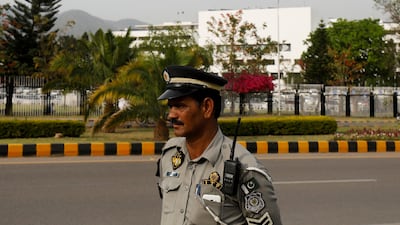The National Accountability Bureau, the leading anti-graft agency of Pakistan, is initiating a fresh wave of corruption cases against top politicians, while a new case has also been launched against the jailed ex-prime minister Imran Khan.
According to NAB, Mr Khan’s former government in 2022 collected Rs4.32 billion through the telethon for flood victims, but discrepancies were discovered in the payment records.
Mr Khan is presently incarcerated in a case related to the disclosure of state secrets. His stay in prison has been prolonged until September 26, following an extension of his judicial remand by a special court.
At the same time, the NAB submitted documents to the Accountability Court in Islamabad, pertaining to more than 81 corruption cases involving prominent politicians. The Court's Judge, Muhammad Bashir, instructed the court registrar to examine the cases and present their findings.
Salma Begum, an NAB official, stated that in Khyber Pakhtunkhwa province alone the investigative body would resurrect around 134 corruption cases. The Bureau has returned the corruption references to accountability courts in the conflict-hit province, which is currently seeing a revived insurgency at the hands of the Pakistani Taliban.
Among the individuals affected by the revival of cases are notable figures such as caretaker Prime Minister Anwaarul Haq Kakar, former prime minister Nawaz Sharif, former president Asif Ali Zardari and Maryam Nawaz, daughter of former prime minister Sharif.
Gilgit-Baltistan Governor Syed Mehdi Shah and Maulana Fazlur Rehman, the head of the conservative Jamiat Ulema-e-Islam Pakistan party, are also facing revived cases.
Analysing the cases, Sarfraz Khan, an analyst and former director of the Area Study Centre at the University of Peshawar, stated that NAB is not an impartial body but has often been used by the establishment to control politicians.
"If institutions like the Federal Investigations Agency and others are strengthened, they can carry out accountability and there would be no need for NAB," he said.
He emphasised the need to strengthen democracy and establish a system like those in developed countries, where institutions such as customs and investigations operate independently within their defined jurisdictions.

